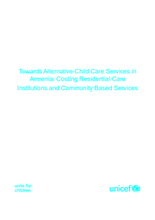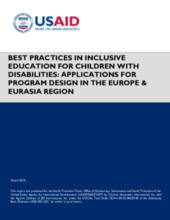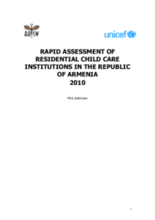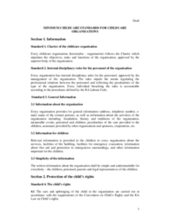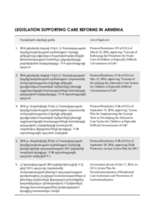childrens_living_arrangement
children_living_without_bio
Displaying 31 - 38 of 38
This report, produced by the Center for Educational Research and Consulting (CERC) and Save the Children, summarises the broader research study ‘Development Perspectives of Foster Care in Armenia’, which examined the foster care pilot programme introduced in Armenia in 2005.
This document from the National Statistical Service of the Republic of Armenia provides an overview and assessment of the alternative care system in the country.
This recent study by UNICEF in Armenia costed different types of residential care and community based services.
The purpose of this study is to provide an overview of best practices in inclusive education, inform stakeholders of the current status of inclusive education in the region, describe the contextual factors which affect program implementation, and make recommendations of practical start-up steps for inclusive education programs.
The study covers all residential child care institutions operating in Armenia, with the purpose of creating a basic baseline for further analysis required for the progressive reduction of placement of children and the development of alternative child care services. The aim of the assessment is to verify the situation of each child in relation to their families, and the respect of their entitlements related to their specific condition.
Guidelines for the minimum standards for residential childcare institutions in Armenia, including how the child should be received, cared for, and the arrangements for the child leaving the institution.
Examines the transition from residential care to family-based, community care models in five European / Eurasian countries.
This document provides a list of care-relevant literature related to Armenia. The list includes legislation and policies related to child rights, child protection, social protection, guardianship, family-based care, institutional care, adoption, and more.



